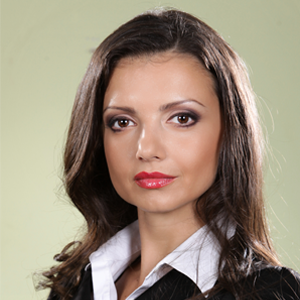

What known and lesser-known mechanisms for doing business provides the membership of Bulgaria in the EU
“The XXI century will be the century of the social sector organizations. The more economy, money and information become global, the more community will matter” – Peter Drucker
The words of the American specialist in business management reflect without doubt in the increasing interdependence of the national economies in the world and the increased cross-border movement of goods, services, technologies and capital.
In Europe, these irreversible processes and the need for economic cooperation after the Second World War initiate a unique economic and political organization, which we call today European Union and which has become without doubt a major driving force of the business progress on the Old Continent. As one of the twenty-eight Member States Bulgaria offers its citizens an opportunity to have all euro mechanisms for the development of own business and support of the global economic progress. For us, Bulgarians, remain the questions what we know, what we want and how to do it.
Starting a business
Any EU citizen can start their own businesses, including as a sole trader, or establish a branch of an existing enterprise of the EU in each Member State. The requirements vary in the different countries, but the EU encourages the Member States to comply with the basic uniform rules on the deadlines, prices and methods of registration, namely:
- the establishment to be carried out for no more than 3 working days;
- to cost no more than 100 Euro;
- all registration formalities to be carried out online;
European company
With the purpose of maximum facilitation and expansion of the business opportunities within the territory of the EU, the Community legislation (Regulation (EC) № 2157/2001) provides a possibility for establishment of a European public limited company, which could be easily described as a mirror of the global economic progress.
The European company is a legal entity with capital, denominated in euro and divided into shares. The subscribed capital cannot be less than 120 thousand euro and the shareholders are responsible to its amount. What is achieved through the establishment of the European Company (ES) is easier doing of business at lower costs in more than one EU country, because the different activities can be united through it under a common European brand.
Main feature of the ES is also the ensuring of greater mobility of the single market, which is expressed in the possibility to transfer its registered office in another EU country without the need for its closure and re-establishment.
The European company can be seen as a “framework” for cross-border activities, as its establishment allows the use of staff, employed in more than one EU country, and the managing of the business, without the need for establishment of a network of subsidiaries.
Regulation (EC) №2157/2001 provides several options for establishment of a European company:
- by merger of public limited companies from at least two different Member States;
- by establishment of a holding company or a joint subsidiary for joint stock companies and limited liability companies with registered offices in different EU countries or which have branches/subsidiaries in EU countries, other than the country, in which they have been established for more than 2 years;
- by simple transformation of a joint stock company if it has its registered office in a Member State and a subsidiary in another branch for more than 2 years.
The registered office and the headquarters of the European company must be in the same Member State, as the liquidation and bankruptcy shall be governed by the laws of that particular country.
Mergers with foreign companies
The European legislation regulates numerous rules on business opportunities, relating to the merger of two or more companies of different Member States.
In the event that one or more companies have been bought by a third company, all assets and liabilities of the purchased companies are transferred to the acquiring company. That practically means a cessation of activity of the acquired companies, but it is not officially considered as liquidation. The acquiring company must issue securities (e.g. shares), representing the capital of the company, in exchange for the assets, received by it by the transferring. A need for cash payments can arise, but they may not exceed 10% of the nominal or book value of the securities of the acquiring company.
When two or more companies transfer all their assets and liabilities to an entirely new company, which they form, the activity of the companies, transferring the assets, will also be terminated at the end of the process, without having to undergo any formal liquidation. The newly established company will have to issue securities (e.g. shares), representing its capital to the owners of the transferred assets companies. In need of payments they again cannot exceed 10% of the nominal or book value of these securities.
In the case, when a company transfers all its assets and liabilities to another company, which already owns all of its securities, the activity of the transferring assets company shall be terminated, without undergoing any formal liquidation.
Companies with a turnover, exceeding a certain threshold (at least 2.5 billion euro combined total worldwide turnover), which do business in the EU and wish to merge, need to request approval from the European Commission. The Commission shall examine the effects of the proposed merger on competition in the EU, as especially monitors and leaves without approval mergers that would lead to a significant restriction of the competition in the EU.
Public procurements
Each merchant, registered in a Member State, is entitled to participate in public procurements, announced in other EU countries. In order to ensure equality of enterprises in Europe, the European legislation establishes minimum harmonized rules on the procurement within the community.
These rules, transposed into the national legislation, apply to tenders, whose monetary value exceeds certain thresholds, such as 5.186 million euro for building contracts. The European legislator assumes that the tenders of value “above the threshold” are cross-border interest, or in other words, the contract value to them is large enough to interest an enterprise abroad.
For tenders with lower value apply the national rules, which although have to respect the general principles of EU law.
These rules are outlined in Directive 2014/24/EC of the European Parliament and of the Council as of 26 February 2014 on public procurements, as they regulate all matters and basic principles, relating to the criteria for assigning contracts, the publication of the contract notices and its assignment.
European funding
In order to support the business, the EU through its bodies provides various initiatives to finance sustainable projects with a significant socio-economic impact by providing low-interest loans, bank guarantees and equity investments, as the most recent example is the program JESSICA, which allows an opportunity for joint investment of public and private sector in urban development projects in the 7 largest cities in Bulgaria.
Most often the funding goes through several stages, including publishing of an invitation for project funding, submission of an application form, submission of a business plan of the project, evaluation of the submitted project, a statement of the bank partner, approval decision and conclusion of contract project financing.
The article has been published in Bulgarian, in Capital Daily.









